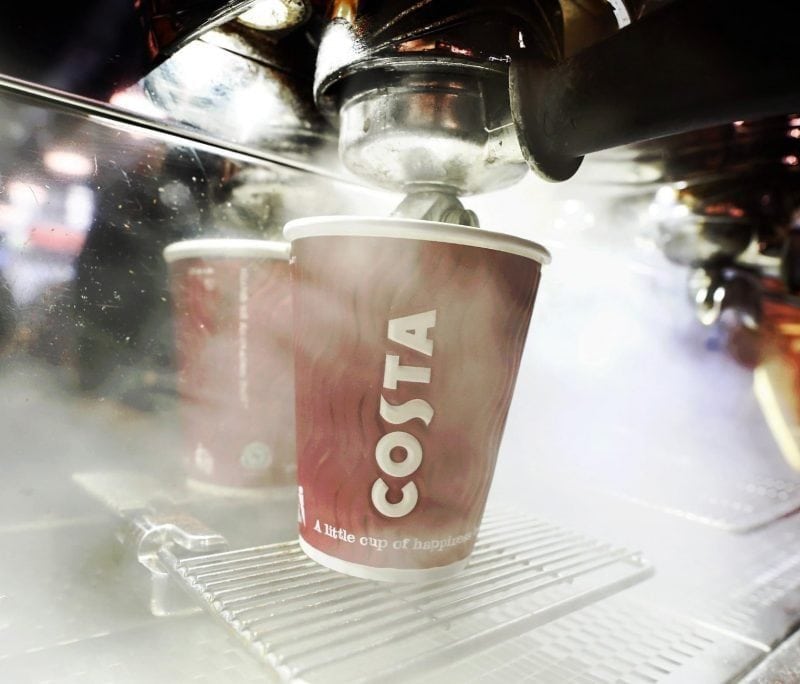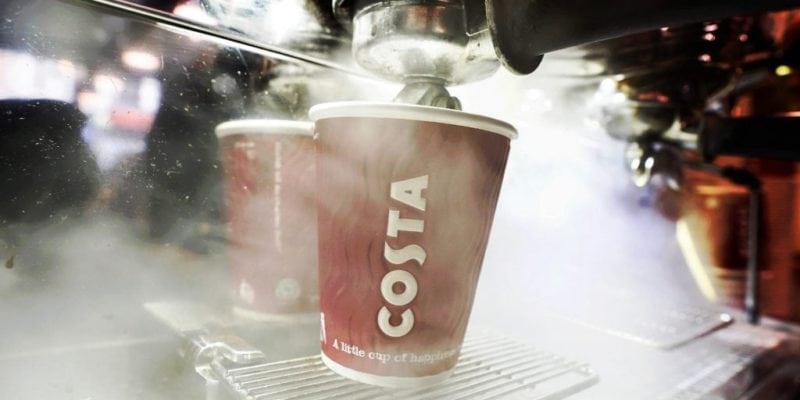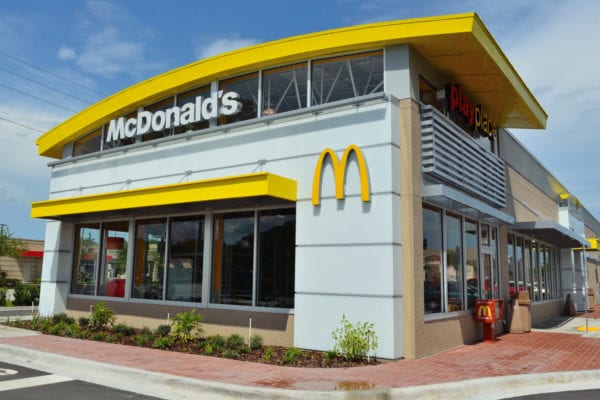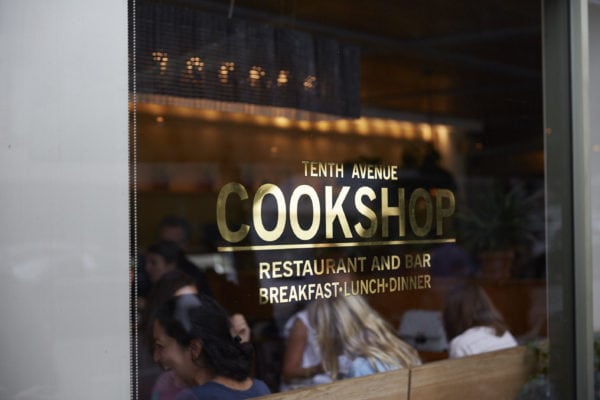Skift Take
This gives Coke a cafe brand with a global footprint to play with. Now if we can just avoid coffee shop overload ...
— Jason Clampet
Coca-Cola Co.’s thirst for an alternative to sugary drinks has proved a boon for Whitbread CEO Alison Brittain.
On Friday, she announced the sale of the Costa Coffee chain to the U.S. beverage giant for 3.9 billion pounds ($5.1 billion). Brittain has been able to capitalize on the fact that coffee is piping hot right now: In May, Nestle SA paid $7.15 billion for the right to market Starbucks coffee outside its cafes, while the Reimann family’s investment company JAB recently snapped up Pret a Manger.
She has extracted what looks, at first glance, to be a very good price far sooner than a planned spin-off would have delivered. It’s close to the 3.5 billion pounds to 4 billion pounds the division was estimated to be worth when investors first started to agitate for a breakup of Whitbread two years ago. As Costa’s performance stalled, most analysts had since trimmed their estimate of its value to between 2 billion pounds and 2.5 billion pounds. On an enterprise basis, the purchase values the coffee shops at about 16.4 times 2018 Ebitda – more than the 12.9 times multiple of Starbucks Corp., according to Bloomberg data.
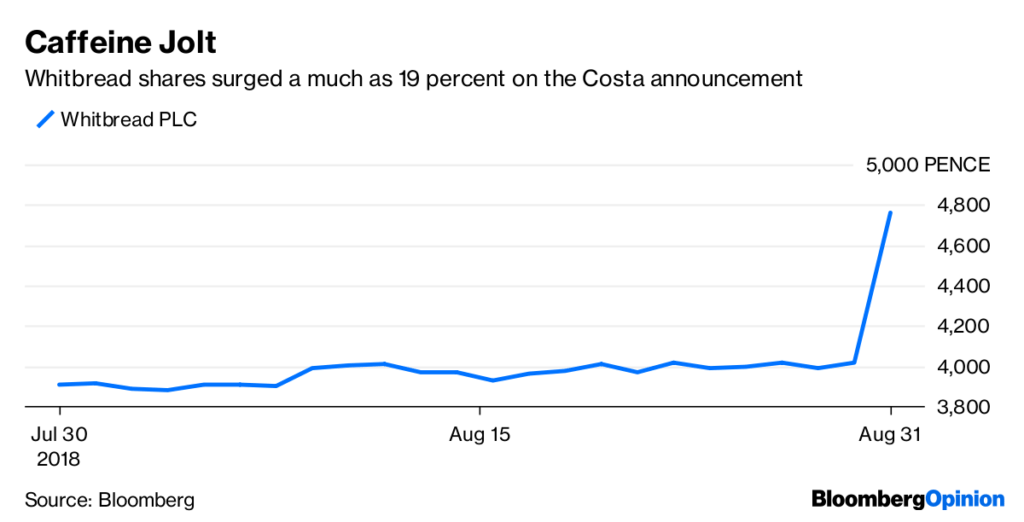
So Brittain can’t be accused of selling Costa on the cheap. This should make her position as CEO more secure after she came under pressure from activist investors Elliott Advisors and Sachem Head Capital Management LP to split the business. Before Friday’s announcement sent the stock up by almost 20 percent, Whitbread shares had slipped 12 percent since she took over in December 2015 – trailing the 21 percent gain in the FTSE 100 Index over the same period.
But there is one outstanding issue: what she does with the 3.8 billion pounds of net proceeds from the sale. The company said it expects to return the “significant” majority of the money to shareholders, and the rest to reduce debt and make a contribution to its pension plan.
Investors will welcome the money for sure, but Brittain risks irking some by splashing out on an expansion of Whitbread’s Premier Inn hotels business in the U.K. and Germany, or even an acquisition of her own. If she wants to do either, she’ll need to convince shareholders she can generate an adequate return. With activists on board wanting to see cash distributed to shareholders, this has the potential to become another storm in a coffee cup.
At least, though, shareholders can console themselves that if Whitbread does pump some money into the hotel arm, it too could have the potential to attract the attentions of a muscular global rival.
©2018 Bloomberg L.P.
This article was written by Andrea Felsted from Bloomberg and was legally licensed through the NewsCred publisher network. Please direct all licensing questions to [email protected].
![]()

